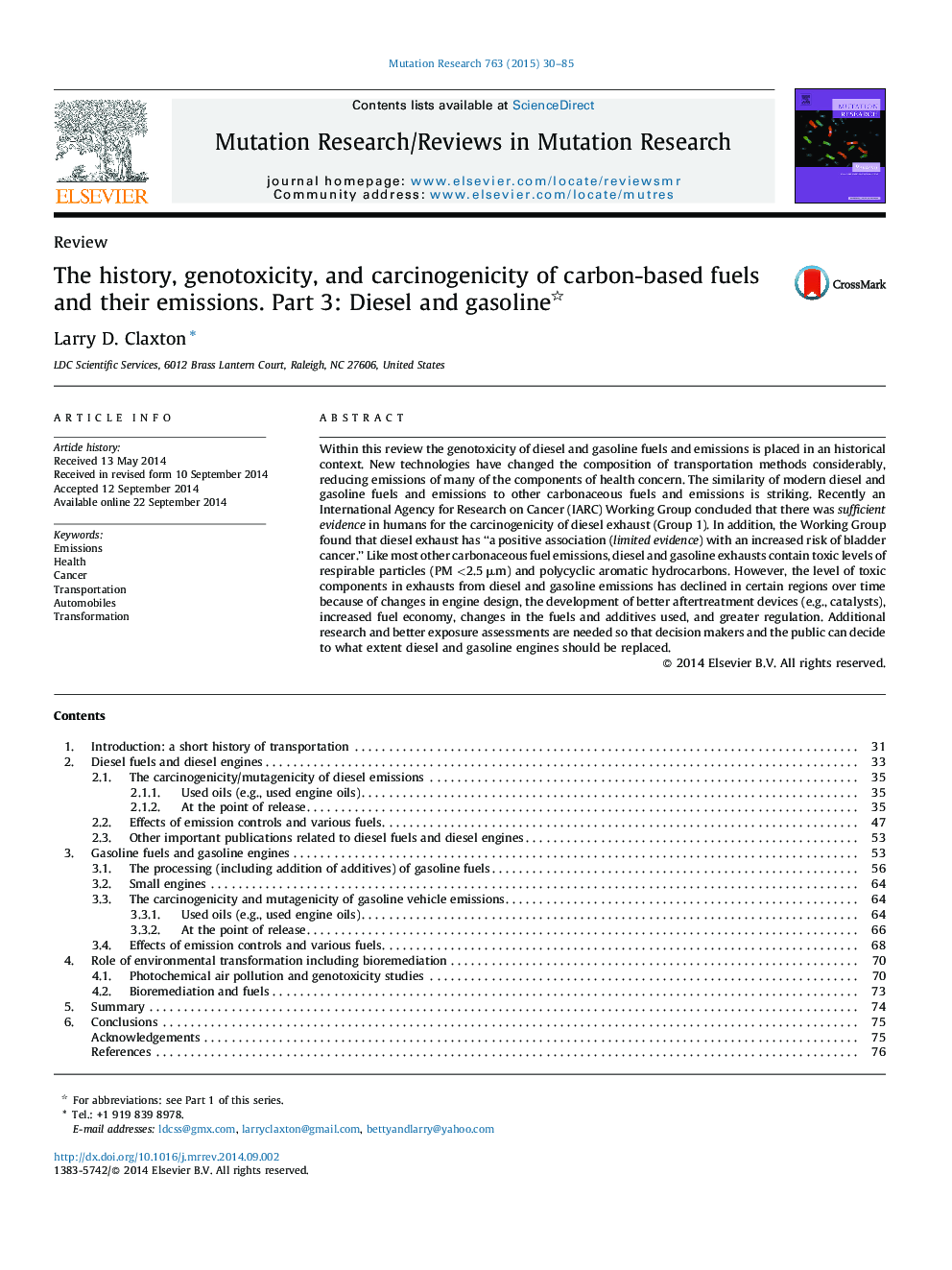| Article ID | Journal | Published Year | Pages | File Type |
|---|---|---|---|---|
| 2149598 | Mutation Research/Reviews in Mutation Research | 2015 | 56 Pages |
Within this review the genotoxicity of diesel and gasoline fuels and emissions is placed in an historical context. New technologies have changed the composition of transportation methods considerably, reducing emissions of many of the components of health concern. The similarity of modern diesel and gasoline fuels and emissions to other carbonaceous fuels and emissions is striking. Recently an International Agency for Research on Cancer (IARC) Working Group concluded that there was sufficient evidence in humans for the carcinogenicity of diesel exhaust (Group 1). In addition, the Working Group found that diesel exhaust has “a positive association (limited evidence) with an increased risk of bladder cancer.” Like most other carbonaceous fuel emissions, diesel and gasoline exhausts contain toxic levels of respirable particles (PM <2.5 μm) and polycyclic aromatic hydrocarbons. However, the level of toxic components in exhausts from diesel and gasoline emissions has declined in certain regions over time because of changes in engine design, the development of better aftertreatment devices (e.g., catalysts), increased fuel economy, changes in the fuels and additives used, and greater regulation. Additional research and better exposure assessments are needed so that decision makers and the public can decide to what extent diesel and gasoline engines should be replaced.
